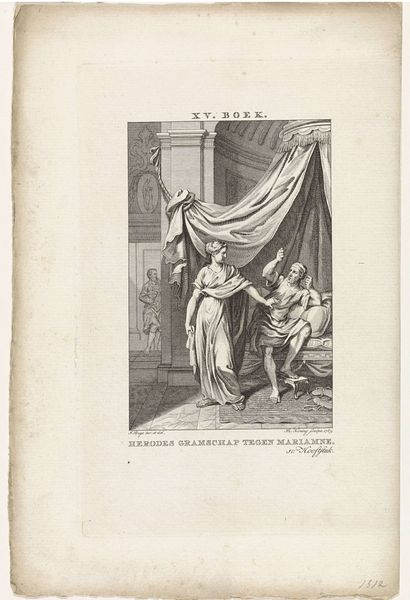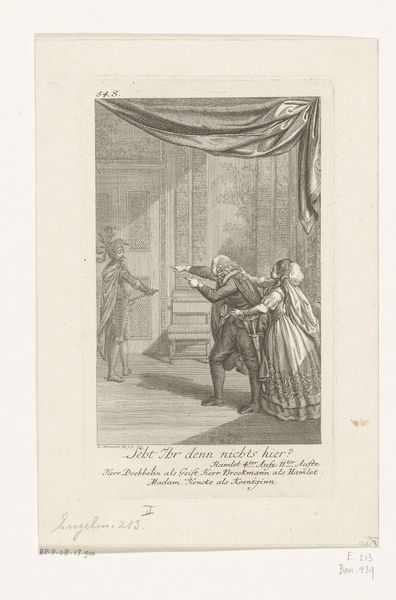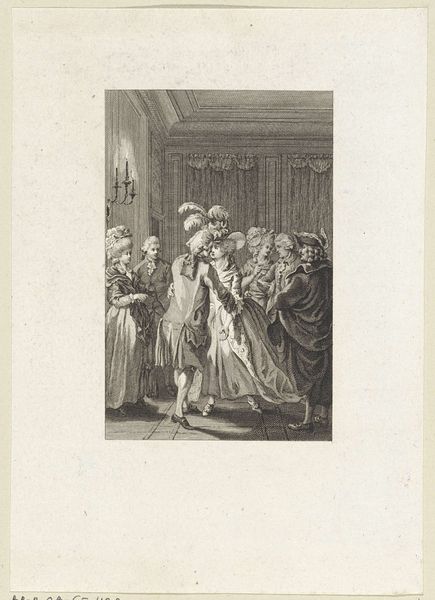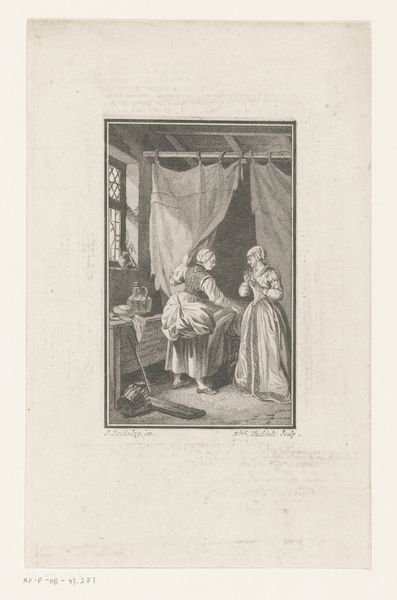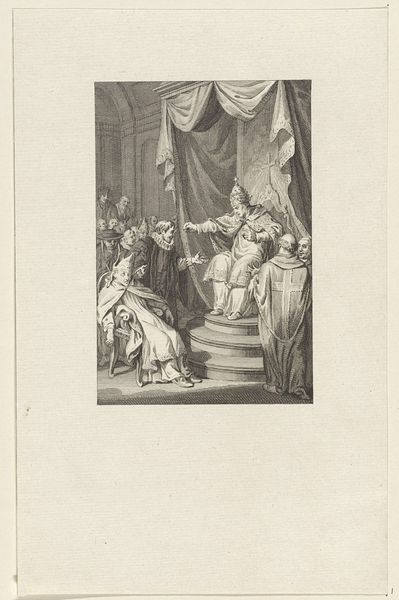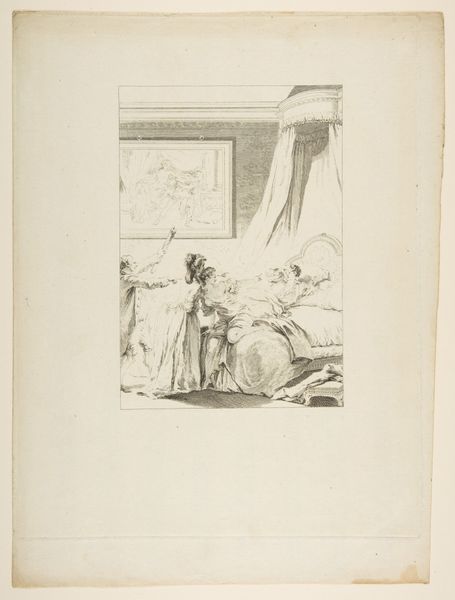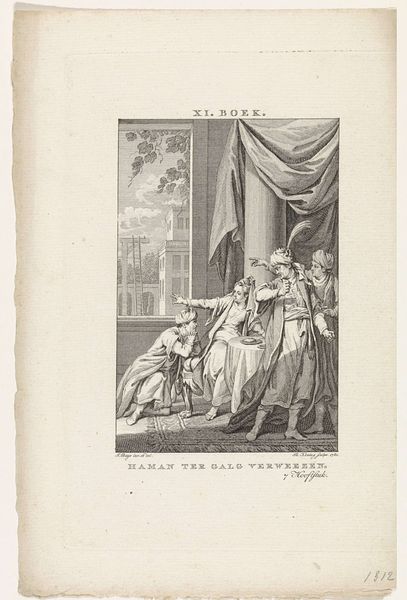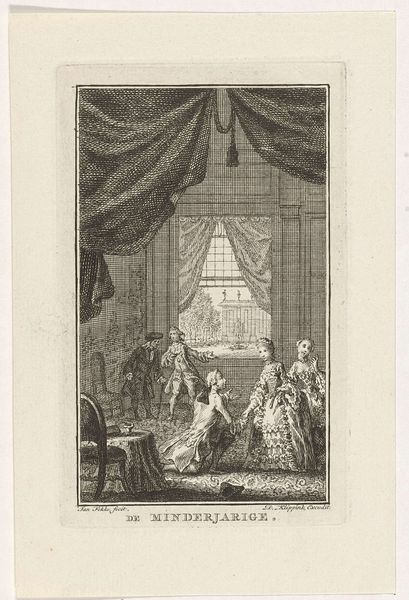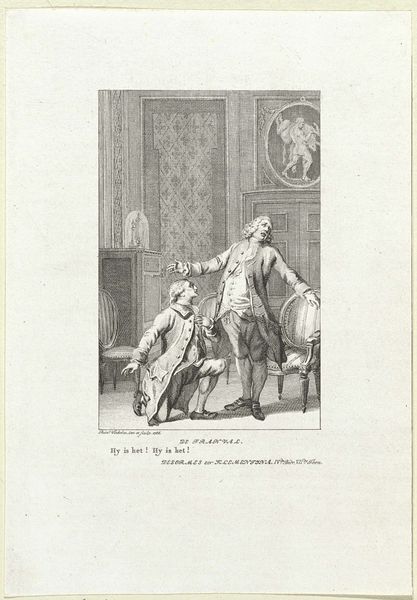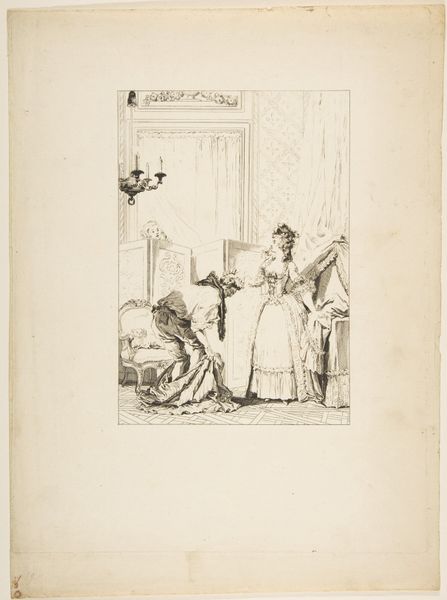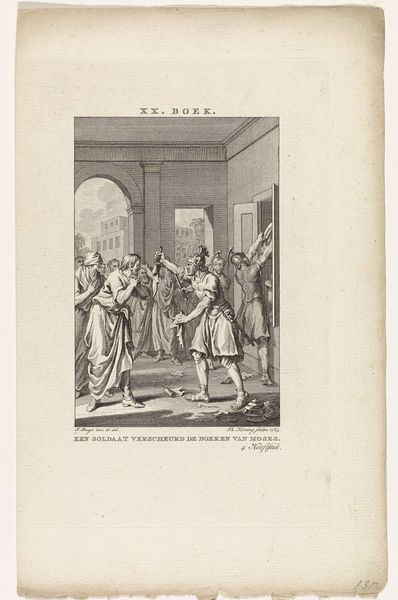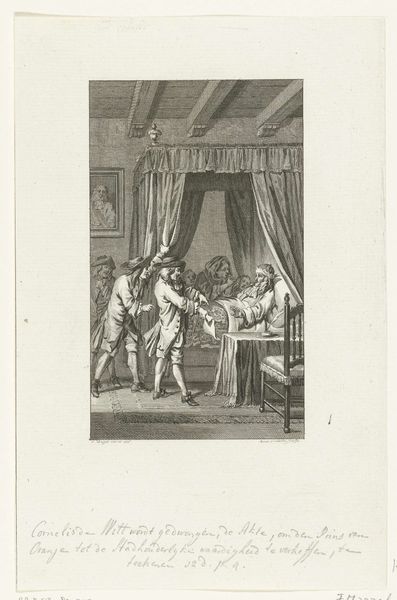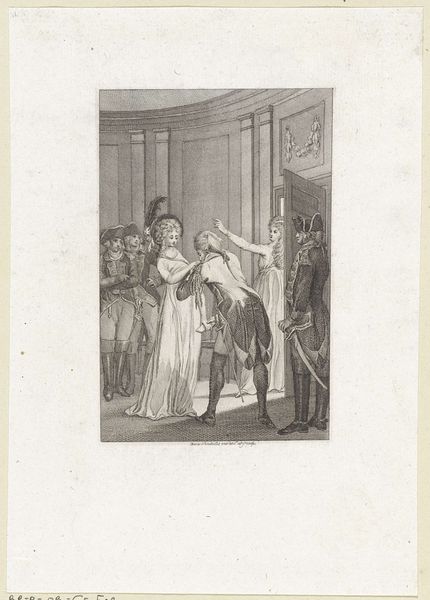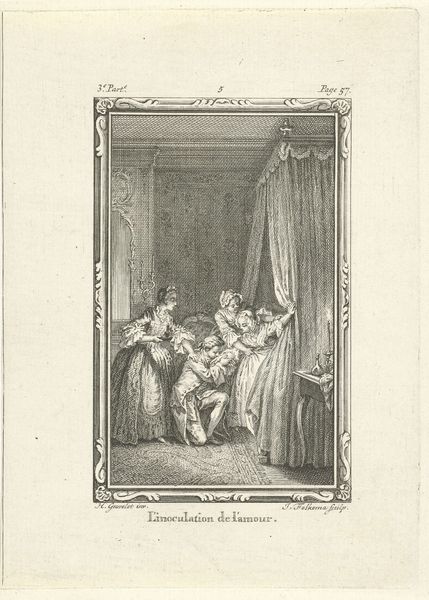
print, engraving
#
portrait
#
neoclacissism
# print
#
old engraving style
#
genre-painting
#
history-painting
#
engraving
Dimensions: height 160 mm, width 100 mm
Copyright: Rijks Museum: Open Domain
Editor: Here we have "Overlijden van prinses Anna, 1759", or "Death of Princess Anna, 1759", an engraving made between 1783 and 1795 by Reinier Vinkeles. It’s held at the Rijksmuseum. The scene seems quite somber and staged, with clear Neoclassical elements in the architectural setting and clothing. What strikes you about this depiction of royal grief? Curator: The "Death of Princess Anna" exemplifies how historical events were meticulously crafted for public consumption. While purportedly showing grief, it's more a display of stoicism befitting royalty during the late 18th century. Consider the neat composition, almost theatrical in its arrangement. What political purpose might this serve? Editor: Hmm, perhaps it was meant to project an image of strength and stability during a time of loss, demonstrating that even in grief, the royal family maintained composure and control? Curator: Exactly! Prints like these were often commissioned to disseminate particular narratives. It’s also vital to remember the social hierarchy; note how even in mourning, there’s a clear power dynamic represented in their postures and positioning relative to the deathbed. Were commoners afforded such elaborate displays of sorrow? Editor: Probably not. It does seem like a very curated presentation of a personal tragedy. I suppose I hadn't thought about how even grief could be political. Curator: Indeed. This image isn't simply a snapshot of mourning, but a deliberate construction intended to reinforce societal norms and project royal authority. Examining such images offers insight into the power structures prevalent during that era. Editor: That definitely provides a different lens for understanding the work. Thanks, that's fascinating! Curator: My pleasure! It's through considering these contextual elements that the past truly comes alive.
Comments
No comments
Be the first to comment and join the conversation on the ultimate creative platform.
